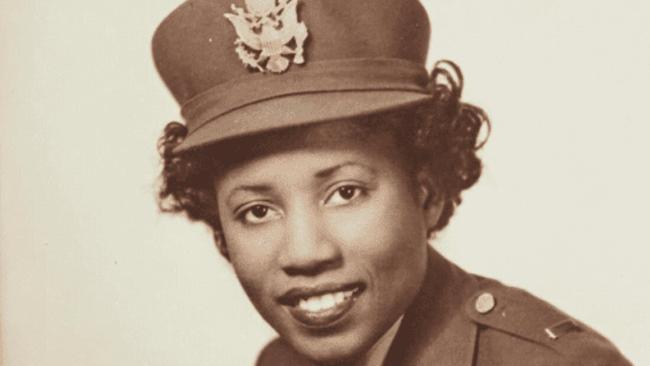Before the civil rights movement, there was a brave, black nurse
Trailblazer Nancy Leftenant-Colon made international news by being the first black nurse to join the regular US army, but struggled at home.

Nancy Leftenant-Colon first sought to enlist as a nurse in the US Army in 1941; she was rejected because she was black.
Four years later, with large numbers of injured servicemen returning from World War II, she was allowed to join the US Army Reserve, but hardly welcomed.
It was not until 1948 – five months before president Harry S Truman ordered an end to racial segregation in the US military – that Leftenant-Colon, the granddaughter of slaves, achieved her ambition: she finally became the first black nurse to join the regular armed forces, an event that made international news. Rosa Parks’s bus protest was a decade off.
Even then she faced hostility. She served in Europe and Southeast Asia, but in America’s deep south she was spat at and barred from whites-only restaurants and hotels, despite being in uniform.
Undaunted, she responded by doing her job to the best of her ability. “I had to be the best,” she said, “because I knew that whatever I did, other blacks after me would be judged by what I did and how I did it.”
She finally retired from the US air force with the rank of major in 1965, a role model for so many others. “This is what I wanted and this is what I went after,” she said. “I don’t know anything that would turn me away from nursing. That was my baby.”
Nancy Leftenant, known to her friends as Lefty, was born in poor farming community near Charleston, South Carolina, in 1920, the seventh of 12 siblings, and her parents, James and Eunice, were children of slaves.
When she was three the family settled in Amityville on Long Island, near New York City, where her father was employed as a labourer and her pipe-smoking mother as a domestic worker.
They built a home from scavenged lumber and kept pigs. “My parents were poor but we were happy,” she recalled. After high school, Leftenant-Colon became the first of her family to go on to higher education, enrolling at one of the only nursing colleges in the US that accepted blacks, the Lincoln School for Nurses in the Bronx. Early on, she spotted a photograph of an army nurse in a magazine. “She was striking, standing proud in her starched white uniform, black cape flowing behind her,” she said.
“She looked really good. And boy, did she have this air of confidence, like she knew where she was going and what she was doing. When I saw that, I said to myself, ‘That’s what I want to be.’ ”
It proved a long, difficult journey. Rejected by the regular military, she joined the Army Reserve in the last year of the war as a second lieutenant. She was posted to a hospital at Fort Devens, Massachusetts, as part of a military experiment to find out whether black nurses could give proper care to white patients. The head nurse made clear that Leftenant-Colon and her black colleagues would be fired if they failed to measure up.
“That speech made us even more determined to succeed,” she said. Her patients seemed less concerned about her colour. “Everybody bleeds red,” she said.
The following year she was moved to Lockbourne Army Air Field in Columbus, Ohio, where she was attached to the 332nd Fighter Group, better known as the legendary all-black Tuskegee Airmen. It was a bittersweet assignment as her younger brother, Samuel, was a Tuskegee fighter pilot until shot down on a mission over Austria in 1945. He was 21, and one of five of her siblings who served in the military. His remains were never recovered.
Leftenant-Colon was again held to the highest standards. “I made sure I was spit and polish all the time,” she said.
On one occasion she and a black woman who had gone into labour were turned away from the white hospital, and she and a black colleague had to deliver the baby outside by themselves. In 1948 she finally was allowed to join the regular military as a member of the US Army Nurse Corps and four years after that she switched to the recently formed US Air Force to become a flight nurse.
While serving in uniform in Alabama, she refrained from drinking water when travelling so she would not need to use facilities in hostile towns. Her white colleagues were more welcoming, and she suffered far less discrimination when serving abroad. She was posted to Germany, to Japan during the Korean War, and in 1954 joined the first medical evacuation flight into Dien Bien Phu, scene of Ho Chi Minh’s victory over the French and the precursor to the Vietnam war.
In 1960 she married Bayard Colon, an air force reserve captain. They had no children and he died of a heart attack 12 years later.
After ending her military career as chief nurse at McGuire Air Force Base in New Jersey in 1965, she returned to Amityville where she worked for another 13 years as the high school nurse. In retirement she broke one more taboo. From 1989 to 1991 she served as president of the veterans’ organisation Tuskegee Airmen Inc, the only woman to hold that post.
“It’s been a wonderful life,” she told an interviewer after turning 102.
Obituary
Nancy Leftenant-Colon US military’s first black nurse. Born Goose Creek, South Carolina, September 29, 1920; died Amityville, New York, January 8, aged 104.
The Times



To join the conversation, please log in. Don't have an account? Register
Join the conversation, you are commenting as Logout